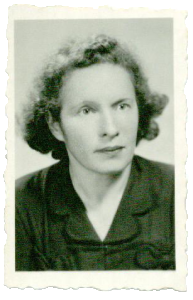 The firsthand and the inter-generational experience, is the key, without it there is no memory once that first generation is gone.
The firsthand and the inter-generational experience, is the key, without it there is no memory once that first generation is gone.
Hadassah-Brandeis Institute Blog 8/26/2015
Memory is Our Home: A Seed Planted in Childhood
My most vivid memory after the war in Poland is of my mother, always watching the door, always hopeful, never giving up that a loved one would enter, back from the dead. Later, when I grasped the magnitude of the crimes against Jews in Europe, I questioned why my parents thought it was essential to stay in “their homeland.” With time, I accepted how important it was for them to restore their roots where their ancestors had lived for 1,000 years. My mother found courage and strength among the ashes of her family. She brought them back to life daily. But 20 years, after the war, Jews were targeted again with an anti-Semitic campaign, sponsored by the Communist government. Between 1968 and 1969, Polish Jews were forced to disappear from Poland.
Read the rest of the article
http://blogs.brandeis.edu/freshideasfromhbi/memory-is-our-home-a-seed-planted-in-childhood/
Read excerpt from the book
http://lightning-and-ashes.blogspot.com/2015/01/memory-is-our-home-by-suzanna-eibuszyc.html
“It was beshert”, she wrote. “Meant to be.” How else could she explain why she had lived, while millions had perished?
My mother’s story is a heroic tale of a young woman who survived, against all odds, as a child and teenager in Warsaw from 1917 till 1939 and as a young woman in Soviet Russia and Uzbekistan from 1939 till 1946. Her manuscript pays tribute to Jewish life in Warsaw in the interwar period, to the thousand yearlong Jewish history in Poland and to Polish Jews who sought refuge on Soviet soil at the outbreak of WWII.
Her decision to flee Warsaw after the Nazi occupation haunted her all her life. A young woman of 22, she left behind starving brother and sisters and their five young children, thinking she would return in a few weeks. Instead, to survive, she kept going east, traveling into the unknown on trains packed with other Jewish and Polish refugees. Soon she found herself in Stalinist Russia, far from Poland and family, full of remorse, but it was a decision that saved her life.
The second part of the book is a tale of survival in Soviet occupied territories, Soviet Russia and Uzbekistan until March 1946. Soviet Russia and Soviet-occupied Central Asia proved to be for Polish Jews the single best chance for surviving and escaping the catastrophe that engulfed Poland’s Jews during the Second World War.
Roma Talasowicz-Eibuszyc was born in Warsaw in 1917, the youngest of six, acutely aware of the world around her. As a teenager she became active in politics, embracing the thriving Socialist Jewish movement, Bund. The first twenty years covered in details, her childhood and young adulthood in Warsaw. Years of exquisite tenderness and love in her family are contrasted with poverty, abandonment, desperation and tragedy that would befall her promising world.
Orphaned three times by the age of fourteen, she remained full of idealism and vitality. With the German occupation in 1939, her Jewish world vanished forever. She escaped Warsaw in order to save herself only to be captured and enslaved by the brutal Stalinist regime.
Surviving in the remote corners of Russia an extraordinary courage and the hope of reunion with the family she had abandoned in Warsaw kept her alive.
Very little is known of the day-to-day lives of those refugees, who after the 1939 invasion found themselves under the Russian occupation. Stalin saw them as “Enemies of the People”. Arrests, killings, and deportations into forced labor in the Russian interior followed. From 1939 to 1946 the refugees subsisted in subhuman conditions: made to work in extremes of heat and cold, enduring brutal punishment, imprisonment, disease: typhus, malaria, dysentery, and scurvy, facing starvation. Only a quarter of those who found themselves in the vast Russian territory made it out alive. My mother, her oldest sister Pola and Abram Eibuszyc–the man who would become my father–were among them.
In 1946, almost a year after the war ended, Roma and the other survivors were allowed to leave Russia, forced to settle in southwestern Poland. Still hoping to be reunited with her lost siblings, she made her way to Warsaw only to witness the city’s devastation, and the annihilation of her family.
In 1968 she was finally bound for America, to be reunited with her only surviving sibling. I was fourteen at the time, witnessing my mother learning English at night, working in a factory all day, and fulfilling her hope that her daughters would become educated young women. Her traumatic days were gone, but her feelings of loss and devastation lived on inside of her until Beshert.
With heartfelt thanks,
Suzanna Eibuszyc